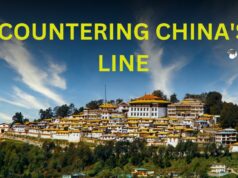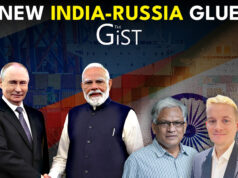As Bangladesh prepares for elections expected in February, the atmosphere in Dhaka is marked by both anticipation and uncertainty, says Professor Sreeradha Datta of OP Jindal University, who has just returned from the country.
“There is hope and anticipation for the elections… but the election is not sure, actually, because there’s always that black swan moment,” she observed, adding that across party lines, people expressed a desire for polls. While impatience with governance persists, she noted that the current situation is “certainly better than what it was earlier,” even if sporadic violence and protests remain disruptive.
A striking feature of recent months has been the role of students. Datta highlighted that three student leaders were initially part of the interim administration, though one of them, Nahid, went on to form the National Citizen Party (NCP), Bangladesh’s first-ever student-led political party. Despite poor results in Dhaka University elections, the group has organized district-level meetings and aspires to break into a system dominated by entrenched political players. “I’m actually supportive of fresh blood entering this political space,” she said, though perceptions linger that some students are aligned with conservative groups.
On the Jamaat-e-Islami, Datta noted a shift in strategy. Once seen as street agitators with rigid positions, the party now projects a “corruption-free” image and has moved away from earlier stances, including opposition to the Liberation War. “They are very tactically moving away from positions to endear themselves to a larger section of the voting population,” she said. Still, conservatism persists, particularly regarding women’s attire, with more burkhas now visible in public life.
Turning to India-Bangladesh ties, Datta underlined that while Sheikh Hasina had addressed New Delhi’s security concerns and facilitated transit rights, Dhaka felt its own concerns—particularly water sharing and border management—remained unresolved. “Everything that India and Bangladesh did benefited the people,” she noted, but the perception that India “was not taking that extra step” still lingers.
Re attacks on Hindus, there has always been some element of tension, but of late, the overt hardline Muslim movement on the streets has led to some nervousness, she argues. For more fascinating insights from an expert on India-Bangladesh relations, watch the full interview.
In a career spanning three decades and counting, Ramananda (Ram to his friends) has been the foreign editor of The Telegraph, Outlook Magazine and the New Indian Express. He helped set up rediff.com’s editorial operations in San Jose and New York, helmed sify.com, and was the founder editor of India.com.
His work has featured in national and international publications like the Al Jazeera Centre for Studies, Global Times and Ashahi Shimbun. But his one constant over all these years, he says, has been the attempt to understand rising India’s place in the world.
He can rustle up a mean salad, his oil-less pepper chicken is to die for, and all it takes is some beer and rhythm and blues to rock his soul.
Talk to him about foreign and strategic affairs, media, South Asia, China, and of course India.




